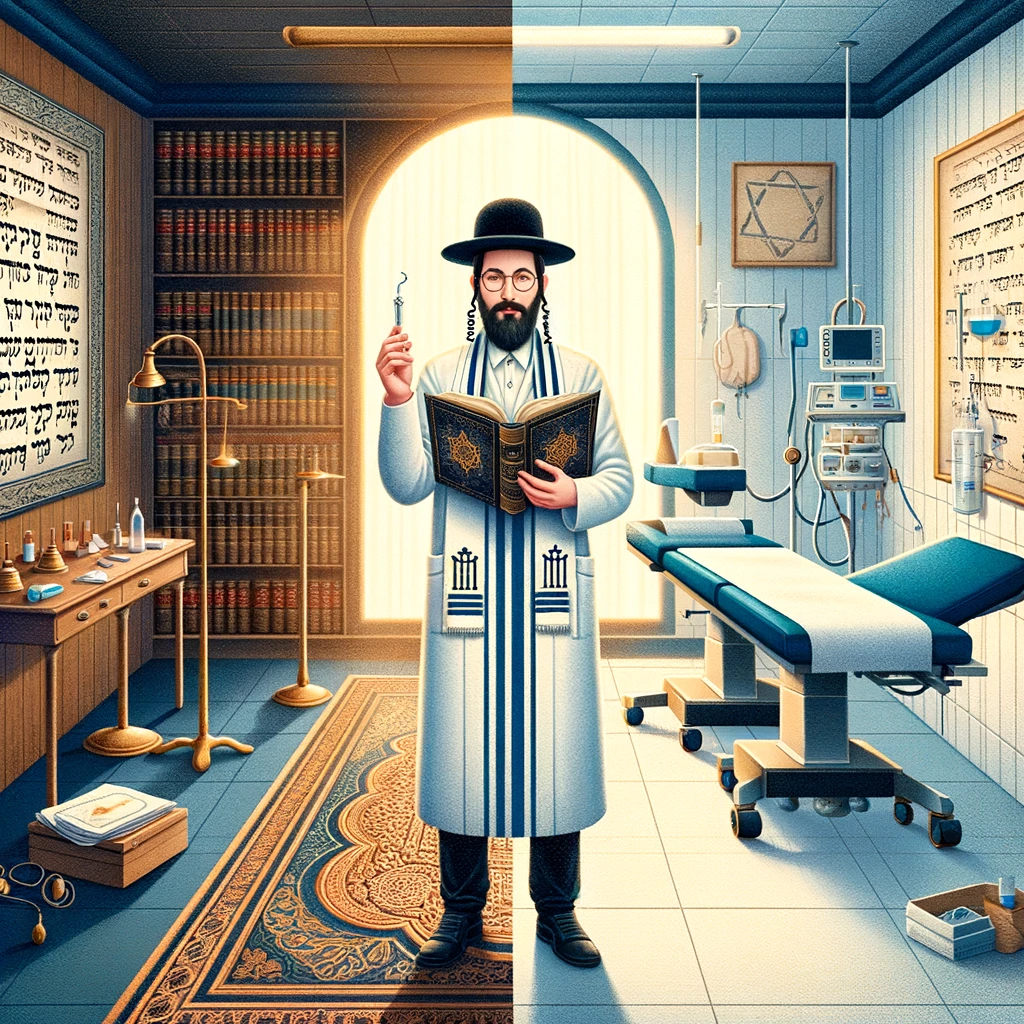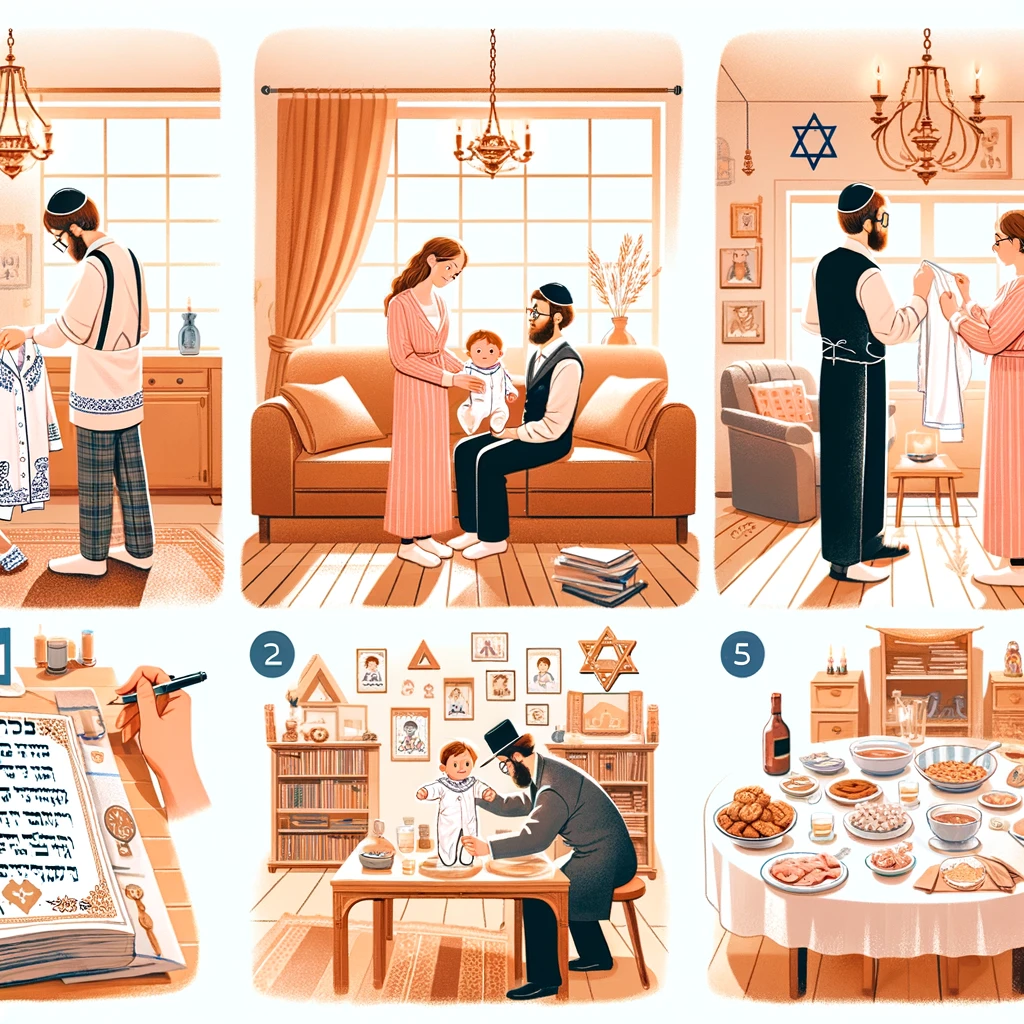The Role of a Mohel in Circumcision: Balancing Tradition and Modern Medical Practice
Qualified sap

 333
333 
Between Tradition and Innovation: The Evolving Role of the Mohel Today
Circumcision is an ancient and fundamental Jewish commandment that has been an integral part of Jewish identity for thousands of years. The role of the mohel in performing it holds deep historical and spiritual significance and is rooted in the heritage of generations. However, in the modern era, mohels face new challenges that require the integration of modern medicine with ancient tradition. This article will examine how mohels navigate between these two worlds and reshape their roles.
Sacred Tradition and the Uniqueness of the Role:
Mohels serve as a central link in the chain of Jewish generations, as guardians of the circumcision command since the days of our forefather Abraham. They undergo comprehensive training in the laws of circumcision and in various community traditions. Their role involves not only the physical act but also imparting spiritual meaning to the circumcision and supporting families during this special time. The mohel acts as a guide and companion, explaining the importance of the commandment and preparing the parents for it.
For example, there are mohels who dedicate a significant amount of time to conversations with the parents before the circumcision, explaining the religious and spiritual significance of the circumcision, and ensuring that the family understands all the stages of the process. In this way, mohels do not just perform a technical role but also help preserve the spiritual connection between generations.
Integrating Modern Medicine - Challenge and Opportunity:
In recent generations, with rapid medical developments, mohels are required to acquire new knowledge and skills. In addition to their expertise in Jewish law, they must be skilled in modern surgical techniques, sterilization methods, and medical protocols. Many mohels undergo specialized training and are examined by medical bodies to ensure the health of the infants.
This integration between tradition and innovation allows mohels to perform the commandment with maximum safety while preserving its essence. For example, mohels who are also certified by the Ministry of Health ensure that every circumcision procedure is performed according to the highest medical standards, thereby reducing medical risks and ensuring that the circumcision is carried out in the safest manner possible.
Bridging Gaps and Social Sensitivities:
With changes in modern society, mohels encounter a wider variety of families and backgrounds. They are required to show sensitivity to unique needs and concerns, tailoring their guidance accordingly. Many mohels emphasize the necessity for a deep understanding of the social and cultural diversity present today in Jewish communities.
For instance, some mohels are trained in intercultural communication, capable of bridging gaps between families with different religious backgrounds or among various communities in Israel and abroad. They help families feel comfortable with the commandment while respecting tradition and law, thus becoming a bridge between worlds, bringing hearts closer and strengthening the shared Jewish identity.
Preserving Essence in a Changing World:
Despite the challenges and changes, mohels are committed to preserving the essence and significance of circumcision. They understand that they are part of a long transmission chain and act out of a sense of mission and purpose. In every circumcision, they carry with them the Jewish heritage to future generations.
This dedication, alongside constant adaptation, ensures the continuity of the commandment of circumcision as a cornerstone of identity and tradition in a changing world. For example, mohels who succeed in integrating adherence to Jewish law with modern medical knowledge demonstrate how tradition’s values can be preserved while adjusting to contemporary realities.
Frequently Asked Questions:
Are all mohels certified by medical bodies?
Most mohels today undergo medical training and certification by the Ministry of Health or other accredited bodies, in addition to their halachic training. However, it is important to verify the medical certification of each specific mohel. This ensures that the mohel is knowledgeable about both the medical and health aspects of circumcision, which is important for ensuring the safety of the infant.
How can a mohel assist a nervous or worried family before the circumcision?
Experienced mohels dedicate time to calming conversations with the parents, explaining the different stages, addressing questions, and alleviating concerns. They emphasize the safety of the process and its spiritual significance, creating a supportive and inclusive atmosphere. For instance, mohels who are experienced in working with anxious families know how to soothe those worries by providing professional and humane information, thus helping families navigate the process smoothly.
Could modern changes in the role of the mohel contradict Jewish law?
Mohels are careful to adhere to the principles of Jewish law and consult rabbis regarding any complex issues. In most cases, the integration of modern medicine only strengthens the observance of Jewish law, ensuring maximum health and safety while preserving the essence of the commandment. This blend of tradition and medicine does not contradict Jewish law but enhances it, ensuring the fulfillment of the commandment in the most responsible and optimal manner.
In Conclusion:
The modern mohel embodies a remarkable harmony between long-standing tradition and innovative medicine. Through in-depth knowledge, sensitivity, and dedication to the role, mohels ensure the continuation of the commandment of circumcision in a safe, meaningful, and relevant way. The figure of the mohel serves as a symbol of the eternal vitality of Jewish tradition and its ability to adapt and thrive in every generation.
The role of the mohel continues to develop and refine, merging beautifully between the ancient and the innovative, between the sacred and the mundane. From this encounter, a renewed commitment to the continuation of the Jewish lineage is born, a covenant illuminated in a new light in every generation. Today's mohels, with their profound and diverse training, represent the ability of Jewish tradition to remain relevant and meaningful even in the modern era.






